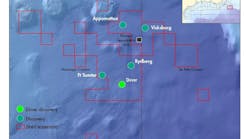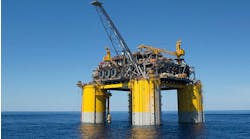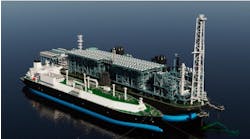Local government, businesses and citizens fighting for Louisiana Gulf Coast economy
Chief among these civil activist groups in Louisiana is the Gulf Economic Survival Team (GEST), and its concerns apparently are getting some positive response.
The nonprofit GEST task force, formed in June 2010 under the leadership of Louisiana’s then acting Lt. Governor, Scott Angelle (now secretary of the state’s Natural Resources Dept.), is made up of local citizens and governmental and business leaders, among others, in the Port Fourchon – Grande Isle – Golden Meadow area of the state’s Lafourche Parish. When they started, GEST employed direct mail, petitions, resolutions and personal appeals to convey their apprehensions directly to President Barack Obama, to his Interior Secretary, Ken Salazar and to the director of Interior’s newly created Bureau of Ocean Energy Management, Regulation and Enforcement (BOEMRE), Michael Bromwich.
Louisiana’s Natural Resources Secretary Scott Angelle.
These issues center around what GEST members believe is an inordinate amount of time – some 11 months – having been spent by BOEMRE in making sure that all deepwater drilling in the Gulf of Mexico is in proper compliance with new federal rules on safety, technical, environmental and mechanical issues connected with federal permits required to drill exploration wells in the deep and ultra-deepwater Gulf of Mexico. GEST is stressing quick and final determination of these issues in the hope of lessening job losses and negative economic distress affecting their region.
Countering the knee-jerk
The original impetus for GEST was the May 2010 official Interior Dept. moratorium on all exploration drilling in water depths of more than 500 ft, which the industry considered a hasty, knee-jerk reaction to the fatalDeepwater Horizon explosion and fire in March that resulted in a major oil spill along the central and eastern Gulf Coast. GEST members, among whom are boat companies, oilfield service providers, small independent producing and drilling companies, engineering firms, and vessel owners, believe the moratorium and subsequent investigations by ad hoc federal commissions and committees give rise to blaming an entire industry for just one incident and deeming it a system (make that industry)-wide problem.
To counter this perception, GEST responded with petitions, testimony before various congressional committees and commissions, conference calls to regulators and workshops designed to develop best practices for compliance with the new requirements.
But even after Salazar lifted the moratorium in October 2010 – two months early – basing the action on what he called the positive response by industry in addressing safety and environment concerns, a resumption in new drilling still was not forthcoming.
That’s when GEST put things into a higher gear. With membership growing by the day, GEST leaders, determined to show that the drilling shutdown was placing a potentially ruinous burden on the Louisiana Gulf Coast economy, succeeded in scheduling face-to-face meetings with government bigwigs like Salazar and Bromwich on their own home turf : Washington, D.C. Various GEST groups made in-person visits to the nation’s capital. In fact, asOffshore went to press, they had made six such trips during January through early March, gaining access each time to intended target regulators and their staffs.
Tackling the issues
Lori LeBlanc, GEST executive director, said GEST currently is focused on three major regulatory hurdles that figure significantly in holding up the issuance by BOEMRE of deepwater drilling permits to offshore operators. They include:
- Whether the industry is demonstrating a leading-edge spill containment capability as called for by regulators. GEST believes the two programs already or soon to be put in place by the Marine Spill Containment Co. and Helix Energy Solutions Group, Inc. will fulfill that requirement.
- “Ambiguous” points contained in a new environmental assessment (EA) approval process, says GEST, need clarification. And since BOEMRE already has exempted 16 drilling projects filed by 13 companies who had obtained approvals from BOEMRE’s predecessor agency, the MMS, GEST believes there may be other companies and projects that fit that criterion and that they, too, merit EA approvals.
The third issue, she said – perhaps the most important of the three – concerns an Interim Final Drilling Safety Rule requirement issued by BOEMRE last fall that calls for companies to embrace industry standards in ways GEST feels are not always applicable or appropriate to each deepwater drilling operation, and which could actually pose heightened safety and environmental risks.
This involves what LeBlanc called “arbitrary” re-writing of existing language, the most contentious of which was changing the introduction to each recommended practice from “the industry should,” to “the industry must.”
“They grouped the entire industry under these change,” she pointed out. “That includes drilling, production, pipelining and all the other phases of offshore development. We believe they failed to go through the rule to determine the unintended consequences of changing ‘shoulds’ to ‘musts.’ It’s simply not doable.”
LeBlanc said GEST is stressing that alternative language be substituted, and while no changes have yet been made, GEST leadership is cautiously optimistic that at least some changes ultimately will be made.
Meanwhile, under the leadership of Angelle, GEST hopes to continue its almost weekly dialog in Washington with Salazar, Bromwich and their staffs in anticipation of returning their communities to economic health before the damage becomes too widespread while there’s still time – but not much.
Offshore Articles Archives
View Oil and Gas Articles on PennEnergy.com




